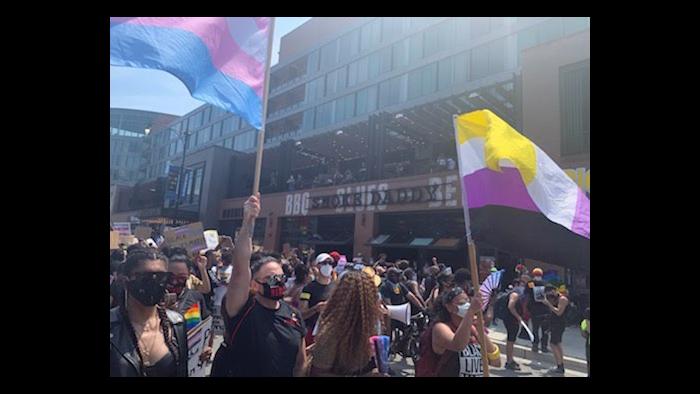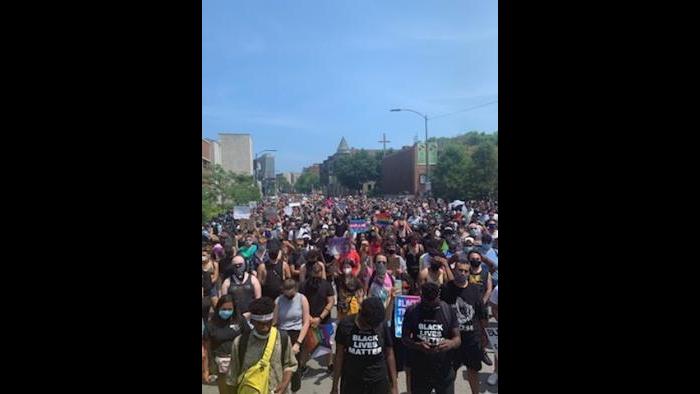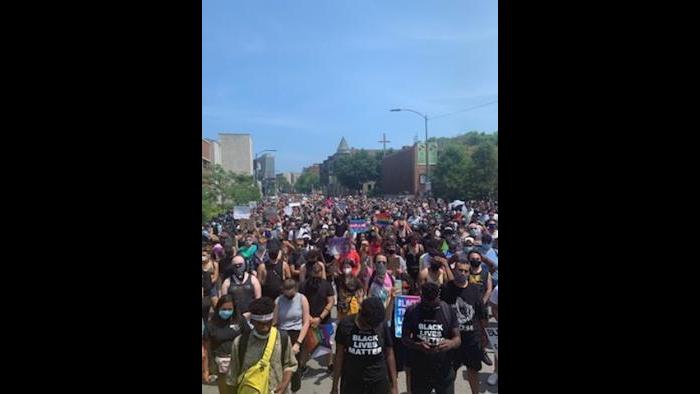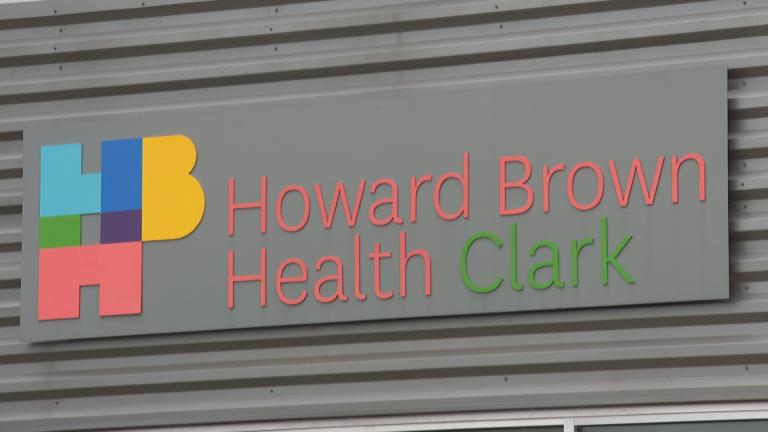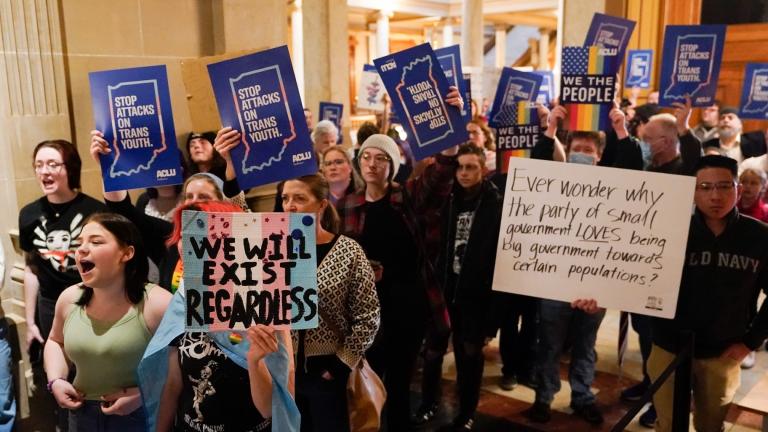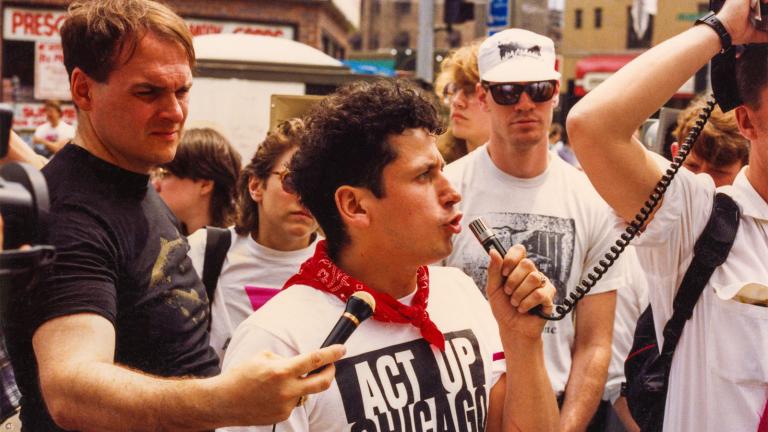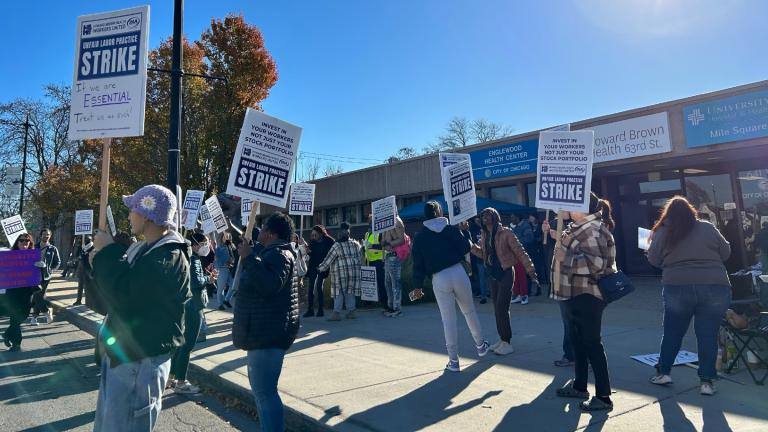Chicago’s 51st annual Pride Parade was canceled as part of the city’s efforts to slow the spread of COVID-19, but LBGTQ activists and allies took over the streets of Boystown on Sunday for a community-driven march organizers described as a “protest, not a party.”
“This march is basically us going back to the roots of the original reason why Pride existed in the first place and basically highlighting that Black and Brown people in Boystown — and in general in society — aren’t taken care of the same way that White people are taken care of,” said Ashabi Owagboriaye, who helped to organize the event. “White queers are prioritized, even though Black and Brown music is what people use to pull in crowds, and with that being used, Black and Brown bodies are usually dismissed and excluded.”
Owagboriaye, who describes herself as Black and queer, said she has attended the Chicago Pride Parade for about 10 years, and said it feels like a massive party where most of the people in attendance don’t understand what they’re celebrating — or the history behind it.
“Before it was really centered around community efforts – community groups and organizations,” she said. “As Pride has become more commercialized, we’re now seeing companies that would never ever sponsor, you know, queer people. So the moment June hits immediately say, ‘We’re all one people,’ rainbows come up, flags come up, some sort of generic quote about how gay people are people too and need to be supported. And then as soon as June as done, it’s over.”
While pride events take place throughout the month of June, Chicago’s official parade is held the last Sunday of the month, around the anniversary of June 28, 1969 when members of the gay and trans communities spontaneously rioted in protest of a police raid on the Stonewall Inn in New York City’s Greenwich Village.
One of the most prominent figures of the Stonewall uprising was Marsha P. Johnson, a Black drag queen. Sunday’s “Reclaim Pride” march was meant to highlight that history.
“Even now Black and Brown trans women are being killed, being disregarded and being brutalized, even though they’re the reason why Boystown exists, they’re the reason why all these safe spaces for queers exist,” Owagboriaye said.
The coalition behind Sunday’s event, made up of groups such as the Brave Space Alliance, Chicago Alliance Against Racist and Political Repression and Affinity Community Services, is also looking to the future. According to a press release, they are demanding, among other things, “bars and events to not only include, but showcase and feature the black, brown, trans, femme, lesbian, non-binary, ballroom and all other underrepresented communities on all promotions and advertisements,” the decriminalization of sex work, and “justice for Trans lives who have been murdered.”
“Basically, making sure that Black and Brown people are safe in Boystown, obviously defunding CPD (the Chicago Police Department), obviously maintaining the movement and Black Lives Matter,” Owagboriaye said.
Specifically, queer and trans Black lives.
“And just making sure that the community that we’re in also serves us, and helps to protect us,” she said. “By hiring more Black and Brown performers, making sure that Black and Brown performers are safe, making sure that Black and Brown people that enter the bars are safe and not being harassed by other patrons. That they’re (bar owners) training the staff … so that there’s a safe place for us to go.”
Owagboriaye said when she goes out to Chicago’s gay bars, she’s often overly sexualized or touched inappropriately.
“People expect me to not complain,” she said. Being a queer woman of color, specifically a Black woman, I don’t have the opportunity to speak out unless I want to be labeled an angry black woman, and it really, really sucks,” she said.
Follow Amanda Vinicky on Twitter: @AmandaVinicky

